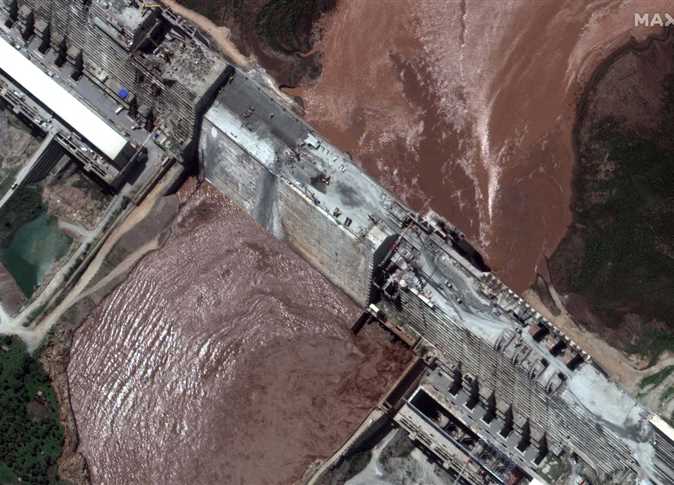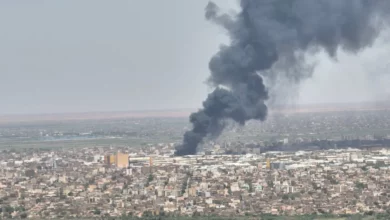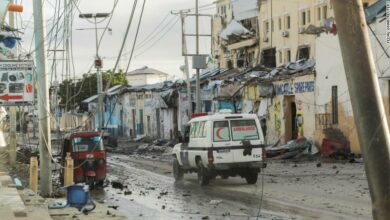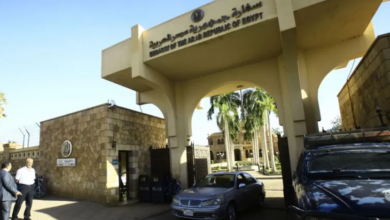
Egypt, Sudan and Ethiopia have agreed to continue to discuss granting the African Union a greater role in the current round of Grand Ethiopian Renaissance Dam talks which resumed on Sunday, following a roughly seven-week suspension, through a six-party team that includes two members from each country.
The resumed trilateral talks between Sudan, Egypt and Ethiopia, headed by the ministers of water resources in the three countries, saw Sudan take over the meeting’s organization.
A statement by the Sudanese Ministry of Irrigation said that its vision is to abandon the previous unproductive way of negotiation and replace it with more effective approaches.
The statement called for giving the African Union experts a greater role in bridging the gap between the three parties and uniting views between them.
The Sudanese negotiation team suggested moving forward with negotiations according to a specific timetable and with a clear list of outputs that will be submitted to the Council of the African Union Commission.
The Ethiopian Ministry of Water, Irrigation and Energy said that the meeting extensively discussed the negotiation schedule for the coming days, as per the guidance of the Minister of International Relations and Cooperation of the Republic of South Africa, and the understanding reached between three countries in their October 27 meeting.
In a statement, it explained that the three countries have agreed to assign six experts, two from each nation, to discuss among themselves and report back to the water ministers the details of the next negotiations and what role the AU experts will play in moving the process onward.
The six-party team’s purpose will be to establish frame of reference for the role of experts in facilitating negotiations between the three countries. The assigned experts will meet on November 2 and submit their report to the tripartite ministerial meeting scheduled for November 3, the statement said.
Ethiopia began building the dam in 2011. It is expected to become the largest hydropower generation facility in Africa.
Since 2011, the three countries have been negotiating to reach an agreement on filling and operating the dam, but despite these years, they have failed to reach an agreement.
The United States, the European Union, the World Bank and the International Monetary Fund, in addition to the African Union, have been participating in the negotiations since the beginning of this year through experts and observers.
Egypt, which relies considerably on freshwater from the Nile, has voiced fears that the GERD would negatively impact the country’s water supply, and has insisted that measures be put in place to protect downstream countries in case of drought during the dam’s filling process.
Ethiopia, on the other hand, has stressed the importance of the project to bolster its economy, where more than half of the population currently lives without access to electricity.
Sudan is somewhat caught in the middle of the conflicting interests of Egypt and Ethiopia. There is potential for the country to develop further with the GERD’s operation, but government officials worry that it could also threaten preexisting dams.




